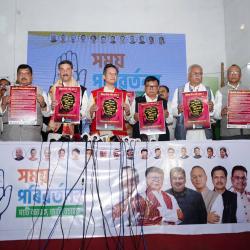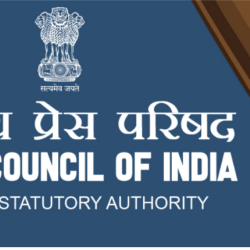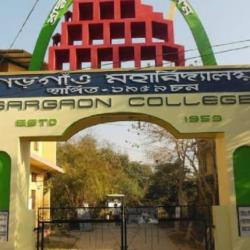It is more than twenty-three years now, the Assam Accord was signed between the Government of Assam and the movement leaders, who propelled an agitation for long six years demanding detection and deportation of illegal migrants from the state. The signing of Accord could not have been possible without involvement of the Union government as the movement leaders had lost confidence on the intention of the state government, which was continuing on the strength of such 'vote banks' of the migrants. The erstwhile, Prime Minister, Rajiv Gandhi took initiative to bring peace in the state as the people were fade up with such a long agitation. It was an Independence Day gift for the people of Assam on the 15th August 1985, when the Accord was signed. Joy and happiness returned to the state and the groups involved in the agitation decided to form a political platform to achieve goals in order to fulfill the aspirations of the people in a democratic way. A new political party, namely, Asom Gana Parishad (AGP), was formed at Golaghat on the 14th October 1985.
The state government 'imposed' on the state during the Assembly elections of 1983 was dismissed and a fresh election was declared by the Election Commission.
With great enthusiasm and hope the electorate gave their verdict in favour of the new political party i.e. AGP, which ruled for a full term of five years with absolute majority in the House. The lack of administrative experience and dependence on the bureaucrats by the new ministers did not allow them to proceed on the 'right path' for which they had vowed to the people of state. Besides, the differences among the party leadership also surfaced. The ultimate result was that the party lost next elections and had to sit in the opposition benches. The Congress Party came back to power again and started the 'old practices'. The game plan of vote banks politics began again and it did not end with only one party, but other political parties also needed it to win the elections. Interestingly, the AGP which had come to power for the first time was also elected on the basis of the old electoral rolls, which was alleged to be full of the names of foreign nationals. The state suffered very much due to political rivalry among various parties.
Unfortunately, except the AGP and the Congress no other party could emerge on the political scene of the state which could play better role to develop the state. Certain youth wings of the political parties and student organizations involved themselves too much in the 'political activities'. The 'Bandh culture' and demand of money from the business houses and industries, very badly affected the economy of state. Most of the industries collapsed and some had to shift to other places. The new entrants in the field were shy of investing in the state because of the continuing insurgency and extortions by the militants.
After giving a chance of one term to the Congress Party, the electorate again tried to give another chance to AGP, but failed to give it absolute majority, though it emerged as the single largest party in the polls. The AGP had to form a coalition government with the Left parties to whom the movement leaders had termed as 'anti-movement' party during the agitation. The most 'irritating position' was that the ministers involved themselves in rampant corruption. Law and order situation deteriorated day by day and discipline in administration was eroded.
The old issue for which the Assam Accord was signed has gone on the backbench. Problems of maintaining law and order before the present Congress-led government is still hampering developmental activities. The issue of foreign nationals is haunting the state till now and no solution is in sight before the state or the Central government. In fact the present government lacks the 'will power' to solve these issues, which have turned to be 'chronic diseases.' It is not that issue of foreign nationals alone is the problem before the state. All these troubles have started because of the soaring unemployment and non-implementation of developmental schemes. Once the people are made to work and be busy, there would not be any necessity to go for an accord. Since the Assam Accord could not be implemented so long, there is no meaning in keeping it alive. A fresh outlook is necessary to solve the situation before the state.
The state government 'imposed' on the state during the Assembly elections of 1983 was dismissed and a fresh election was declared by the Election Commission.
With great enthusiasm and hope the electorate gave their verdict in favour of the new political party i.e. AGP, which ruled for a full term of five years with absolute majority in the House. The lack of administrative experience and dependence on the bureaucrats by the new ministers did not allow them to proceed on the 'right path' for which they had vowed to the people of state. Besides, the differences among the party leadership also surfaced. The ultimate result was that the party lost next elections and had to sit in the opposition benches. The Congress Party came back to power again and started the 'old practices'. The game plan of vote banks politics began again and it did not end with only one party, but other political parties also needed it to win the elections. Interestingly, the AGP which had come to power for the first time was also elected on the basis of the old electoral rolls, which was alleged to be full of the names of foreign nationals. The state suffered very much due to political rivalry among various parties.
Unfortunately, except the AGP and the Congress no other party could emerge on the political scene of the state which could play better role to develop the state. Certain youth wings of the political parties and student organizations involved themselves too much in the 'political activities'. The 'Bandh culture' and demand of money from the business houses and industries, very badly affected the economy of state. Most of the industries collapsed and some had to shift to other places. The new entrants in the field were shy of investing in the state because of the continuing insurgency and extortions by the militants.
After giving a chance of one term to the Congress Party, the electorate again tried to give another chance to AGP, but failed to give it absolute majority, though it emerged as the single largest party in the polls. The AGP had to form a coalition government with the Left parties to whom the movement leaders had termed as 'anti-movement' party during the agitation. The most 'irritating position' was that the ministers involved themselves in rampant corruption. Law and order situation deteriorated day by day and discipline in administration was eroded.
The old issue for which the Assam Accord was signed has gone on the backbench. Problems of maintaining law and order before the present Congress-led government is still hampering developmental activities. The issue of foreign nationals is haunting the state till now and no solution is in sight before the state or the Central government. In fact the present government lacks the 'will power' to solve these issues, which have turned to be 'chronic diseases.' It is not that issue of foreign nationals alone is the problem before the state. All these troubles have started because of the soaring unemployment and non-implementation of developmental schemes. Once the people are made to work and be busy, there would not be any necessity to go for an accord. Since the Assam Accord could not be implemented so long, there is no meaning in keeping it alive. A fresh outlook is necessary to solve the situation before the state.
- Add new comment
- 16602 reads









Comments
Pages
Add new comment